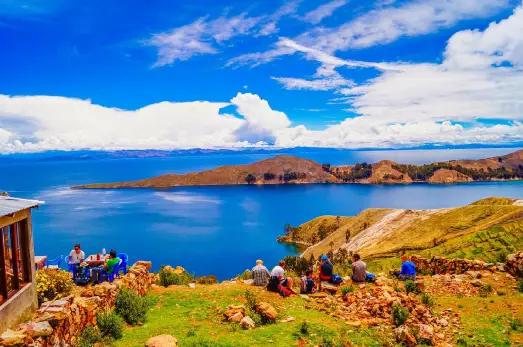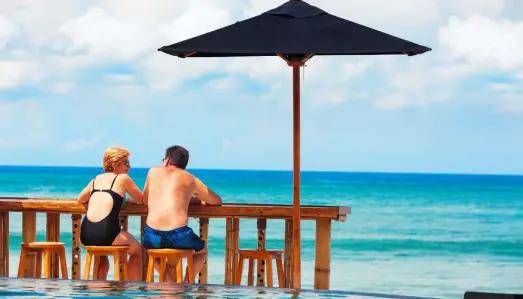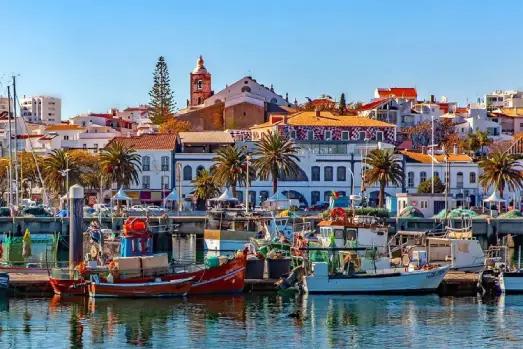TL;DR:
Best Retirement Countries in Oceania:
- Australia: Modern cities, warm weather, high cost of living.
- New Zealand: Natural beauty, great healthcare, high cost of living.
- Fiji: Warm beaches, low living costs, limited healthcare.
- Vanuatu: Affordable, peaceful, limited modern amenities.
- Solomon Islands: Beautiful reefs, traditional life, limited healthcare.
- Papua New Guinea: Rich culture, natural beauty, safety concerns.
Cost of Living:
- Budget-friendly: Vanuatu and Fiji can be affordable ($1,000/month).
- Pricier: Australia and New Zealand, especially in cities.
- Affordable housing: Vanuatu and Fiji offer cost-effective options.
Healthcare:
- Best: Australia and New Zealand with comprehensive services.
- Basic: Fiji and Vanuatu with public services; private options preferred.
Climate:
- Coastal: Warm beaches (Fiji, Vanuatu).
- Urban vs. Rural: City buzz (Sydney) vs. countryside peace.
- Varied climates: New Zealand’s four seasons vs. consistent sun in Fiji.
Visa and Residency:
- Australia: Retirement visa, high investment.
- New Zealand: Temporary retirement visa, investment and income required.
- Fiji: Flexible residency permit, proof of funds needed.
Dreaming about retiring in a tropical paradise, surrounded by crystal-clear waters and vibrant cultures? Look no further than Oceania! In this post, we’ll explore the best retirement countries in Oceania. From Australia’s bustling cities to Fiji’s serene beaches, I’ll guide you through the top spots for retirees. Ready to discover your perfect retirement haven? Let’s dive in!
What Are the Best Retirement Countries in Oceania?
When thinking about retiring in Oceania, Australia pops up first. Known for its modern cities and warm weather, Australia offers a mix of urban and rural options. Retiring here means varied landscapes, from bustling Sydney to the calm Outback. However, it can be pricey, especially in popular cities.
New Zealand comes next with its stunning natural beauty. Think of beaches, mountains, and friendly people. The laid-back vibe suits many retirees. New Zealand has great healthcare and a safe way of life. Yet, it may be colder than some prefer, and the cost of living can be high in cities like Auckland.
If warm weather and island life appeal to you, Fiji is worth a look. Fiji has serene beaches, a slower pace, and low living costs. The local people are welcoming and laid-back. But, it lacks some of the healthcare facilities found in bigger countries.
Vanuatu offers a peaceful and affordable choice. With its beautiful islands and friendly locals, it is a hidden gem. The cost of living is low, and life feels simple and relaxed. However, medical care and modern amenities might be limited.
The Solomon Islands are another unique pick. Known for their beautiful reefs and strong tradition, they offer a quiet way of living. Yet, like Vanuatu, they may lack advanced healthcare services.
Papua New Guinea stands out for its rich culture and natural beauty. It is great for adventure lovers. Retiring here means enjoying diverse landscapes and unique communities. The downside is the limited infrastructure and safety concerns in some areas.
Each country has its own charm and challenges. Knowing what you want in retirement will help you choose your best fit. If you need more info, you can always check detailed resources available online.
How Does the Cost of Living for Retirees in Oceania Compare?
Oceania offers many budget-friendly places for retirees. The general cost of living varies across the region. While some countries are pricier, others are surprisingly affordable.
Budget-Friendly Retirement Options in Oceania
You might ask, “Can you retire in Oceania for $1,000 a month?” Yes, in some places. For example, Vanuatu and Fiji can be affordable. Monthly costs can be low with sensible budget choices.
Comparison of Living Expenses: Australia vs. New Zealand
Australia and New Zealand are popular retirement spots but often pricier. Melbourne and Sydney in Australia have high living costs. In contrast, New Zealand’s Wellington and Auckland, while cheaper than Australian cities, are still costly. Suburban or rural areas in both countries are more budget-friendly.
Affordable Housing Options for Retirees in Oceania
Housing affordability in Oceania is important. Look for smaller towns or less crowded areas. In Vanuatu, you can find affordable homes. Fiji also offers cost-effective housing. A little research can uncover hidden gems without sacrificing comfort.
Managing Monthly Expenses on a Fixed Income
Retirees on fixed incomes in Oceania need careful planning. Monthly essentials like food, utilities, and healthcare must be affordable. Stick to local markets for groceries. Avoid imported goods; they cost more.
Countries in Oceania Where Retirees Can Live for $1,000 a Month
Living on $1,000 a month is possible in some Oceania spots. Vanuatu and Fiji are prime examples. These countries offer a high quality of life at a low price. Local goods and services are inexpensive, adding to the appeal. Always review your budget and plan your spendings well to make this budget last.
For a comprehensive guide on affordable living, you can check out Oceania Budget Living. This can help ensure you’ve got a handle on your retirement finances in the region.
What is the Quality of Healthcare for Retirees in Oceania?
When planning retirement in Oceania, healthcare quality is key. Retirees need good care and services. Let’s dive into each country.
Australia offers strong healthcare for retirees. The government provides Medicare for citizens and residents. This covers doctor visits, tests, and more. Many retirees buy private health insurance for extra coverage.
New Zealand also has a great healthcare system. Public hospitals offer free, high-quality care. Retirees can access a wide range of medical services. Private insurance gives access to shorter wait times.
Fiji and Vanuatu have more basic healthcare options. Public hospitals are there, but they are limited. Many expats prefer private clinics for better service. However, medical care in Fiji can be more accessible than in Vanuatu.
Preventive healthcare is also crucial. In Oceania, Australia and New Zealand have wellness programs for seniors. These include regular screenings and health checks. Using these programs helps retirees stay healthy and active.
Medical tourism is also an option. Thailand and Singapore are close and offer top-notch care. This lets retirees seek treatments they may not find in the region.
Healthcare in Oceania varies by country. Australia and New Zealand lead in quality and access. Fiji and Vanuatu have basic services, with private options available. Keep this in mind as you plan your retirement.
What Are the Climate Options in Oceania for Retirees?
Oceania has many climates for retirees to consider. From warm beaches to cool highlands, there is a climate to suit everyone. Each option affects how you live day to day. Let’s break down the main choices.
Coastal Living and Beach Retirement Destinations
Who doesn’t love a sunny beach? In Oceania, the coastlines often have warm weather year-round. This kind of climate is perfect if you enjoy outdoor activities. Fresher food is also more accessible due to local markets. Coastal living means clean air and beautiful sea views. Places like Fiji and Vanuatu are great for beach lovers.
Urban vs. Rural Climate Considerations
Do you prefer city buzz or peaceful countryside? Urban areas like Sydney offer a mild climate along with busy streets and lots of activities. In rural areas, expect quieter days and a cooler climate. The air quality is often better, too. Balance what you love about city life with what the countryside can offer.
Seasonal Weather Patterns in Top Retirement Spots
Oceania has a varied climate through the year. New Zealand, for instance, has four distinct seasons. Winters can be cold, especially if you love skiing or cozy fires. Summers are warm and great for hiking and beach trips. Fiji and Vanuatu are more consistent, with sunny weather almost all year.
Activities and Lifestyle Impacts Due to Climate
Your interests should guide your climate choice. If you like swimming, surfing, or fishing, choose a coastal spot. Hiking, skiing, or gardening might lead you to a place with more seasonal variation. Think about how weather patterns will impact your daily routines and happiness.
Air Quality and Ecological Benefits of Retirement Locations
Clean air is crucial for good health, especially for retirees. Many places in Oceania, like New Zealand, rank high for air quality. This means fewer pollutants and more time spent outdoors. Enjoy pristine natural settings while staying active and healthy.
Deciding where to retire in Oceania depends on how climate fits into your plans. From sunny beaches to lush highlands, there’s a perfect spot for everyone.
How to Navigate Visa and Residency Requirements for Retirees in Oceania?
Visa Requirements for Major Oceania Countries
Many Oceania countries welcome retirees. Australia, New Zealand, and Fiji offer retirement visas. Each has specific rules. In Australia, you need a retirement visa. New Zealand offers a temporary retirement visa. Fiji’s residency permit caters to retirees. Each country requires proof of funds and health insurance.
Long-Term Residency Options
Long-term residency in Oceania has clear paths. In Australia, you need to invest a large sum. New Zealand asks for a mix of investment and regular income. Fiji is more relaxed, focusing on proof of funds and medical coverage. Most countries require regular renewals and continued proof of financial stability.
Step-by-Step Guide to Retirement Visas
- Research Visa Options: Visit the official immigration websites like Australian Home Affairs for details.
- Gather Documents: Proof of income, health insurance, and criminal record checks. Ensure you have all required papers.
- Submit Application: Complete forms accurately. Submit online or in person.
- Wait for Approval: Be patient. Processing times vary.
- Plan Your Move: Once approved, book your journey and find a home.
Legal Considerations and Advice
Navigating legal aspects may feel daunting. Hire a lawyer familiar with Oceania immigration laws. Ensure your estate plans and taxes align with both your home and host country laws. Legal advice can save you from costly mistakes.
Real Estate Investment Options and Regulations
Investing in real estate can be complex. Australia and New Zealand have strict rules for foreigners. You may need special permissions. Fiji offers more relaxed regulations. Always check local laws and hire a local real estate agent.
Planning for a Smooth Transition
Plan for every detail to make your move smooth. Find local communities of expats. Connect with them for advice. Adjust slowly. Enjoy your new life at your pace. Moving abroad is a big step, but careful planning can make it joyful and enriching.
Conclusion
We’ve covered Oceania’s top retirement spots, costs, healthcare, climates, and visas. Each country’s benefits and challenges give a clear picture. Understanding these factors ensures a smooth and enjoyable retirement transition. Dive deeper into your options, consider your needs and preferences, and you’ll find the perfect place for your golden years.












